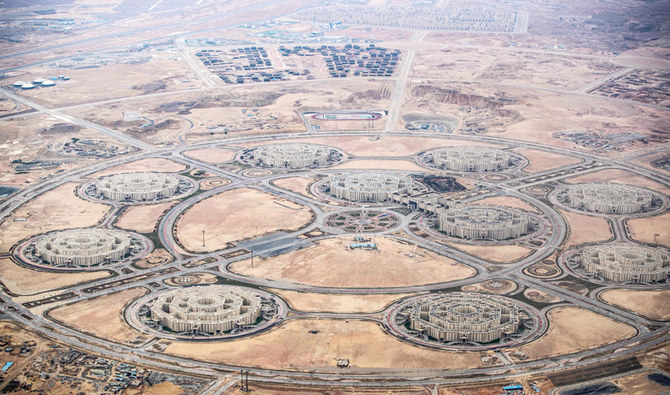CAIRO: The start of the second phase of Egypt’s New Administrative Capital is underway, its chairman has said.
Maj. Gen. Ahmed Zaki Abdeen, chairman of the New Administrative Capital Company also said there are also plans to implement new proposals in an area of 47,000 feddans (48,778 acres).
Abdeen said the focus is now on attracting international brands in fields such as electronics, computing and electronic services. Different sectors in the capital will be divided into smaller “cities.”
He said the capital is communicating with major international companies like Microsoft and Amazon for the project.
Abdeen said there will be fewer residential neighborhoods in this phase compared with the first phase. The third phase of the new capital will be built on an area of 90,000 feddans (93,405 acres).
He said that the new presidential district, government district and headquarters of the House of Representatives will be completed by the end of the year, and that the presidential neighborhood will be ready to receive the Egyptian leader.
Egyptian President Abdel Fattah El-Sisi has said he will exercise his duties from the new headquarters after June 2021. The government also plans to move to the government district at the same time.
FASTFACT
Egyptian President Abdel Fattah El-Sisi is likely to exercise his duties from the new headquarters after June 2021.
Abdeen added that the rest of the residential neighborhoods are between 70 and 80 percent complete. There are growing expectations that within three to four years, the capital will have seen a huge influx of new residents.
Abdeen said that total investment in the first phase of the project ranged from 700 to 800 billion Egyptian pounds ($44.2 to $50.2 billion) and did not cost the state any money.
“We are hoping to transform the New Administrative Capital into the capital of the Middle East,” he said.
This project is designed to boost Egypt’s economy. He said the New Administrative Capital is a smart city that will feature the latest technology.
Abdeen added that services in the capital will be accessible using a unified main card. Those who live in the capital can obtain services using the card, as well as buy products and transportation, removing the need for cash.
He said that services are controlled through a central control and operation center operated on a fiber network. The capital is secured by a camera system linked to satellites, the security control center and signaling systems. Accidents and fires can be dealt with rapidly through the system, Abdeen added.























